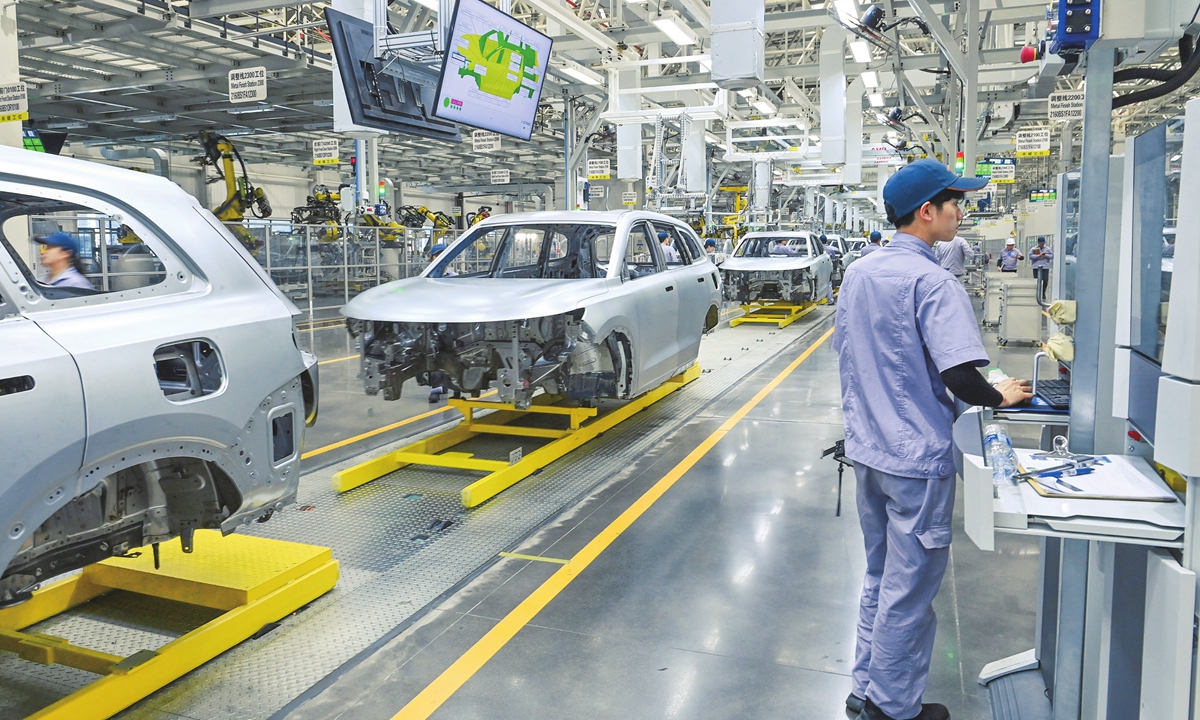
The manufacturing line of a NEV factory in Southwest China's Chongqing Municipality Photo: VCG
To boost vehicle trade-ins, China's financial regulators on Wednesday jointly announced the removal of a regulatory cap on loans for people who buy either internal-combustion engine cars or new-energy vehicles (NEVs) for their own use, giving financial institutions full discretionary power to determine the loan amounts.
Analysts said on Saturday that the new rule will allow zero down payments, which will boost sales. They also said that the move is among the country's efforts to boost the trade-in of consumer goods and large-scale equipment renewal, in a bid to promote consumption from both the supply and demand sides.
The People's Bank of China (PBC), the country's central bank, and the National Financial Regulatory Administration (NFRA) jointly issued the notice on Wednesday, clarifying that it will be up to the lenders to set the maximum proportion of such loans.
This means that financial institutions can make loans for the full price of a car, that is, "zero down payment."
Previously, the loan ratio for individual fossil fuel cars was capped at 80 percent and that for NEVs was 85 percent.
The PBC and NFRA pointed out that the new rule aims to increase financial support for automobile trade-ins.
Analysts said that the new rule is in line with China's massive consumption stimulus move - the replacement of old consumer goods with new ones and renewals of large-scale equipment.
The policy was part of the goals set in the 2024 Government Work Report released on March 5, which says that China will encourage and promote consumer goods trade-in programs and boost spending on intelligent connected NEVs, electronic products and other big-ticket items.
According to a circular issued on March 13, the State Council, China's cabinet, released an action plan to promote large-scale equipment renewals and trade-ins of consumer goods.
The State Council is encouraging more policy support for vehicle trade-ins. It also called on central government departments and provincial governments to appropriately reduce the down payment ratio for passenger car loans.
By 2027, the recycling of scrapped cars will roughly double from 2023 and used car transactions will increase by 45 percent, read the circular.
Statistics from the Ministry of Commerce revealed that China's car ownership reached 340 million by the end of 2023.
Analysts said that the promotion and implementation of a new round of automobile trade-in policies will boost the demand for automobiles from "having a car" to "having a high-quality car."




